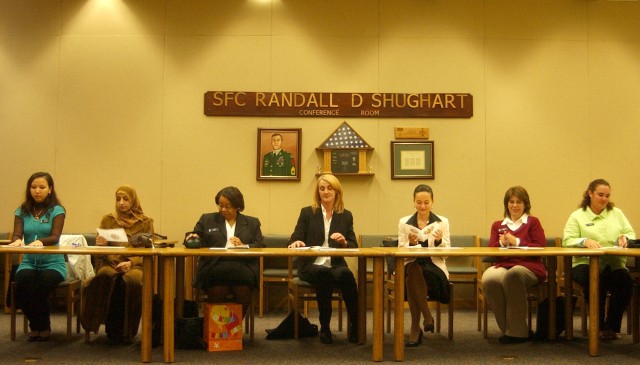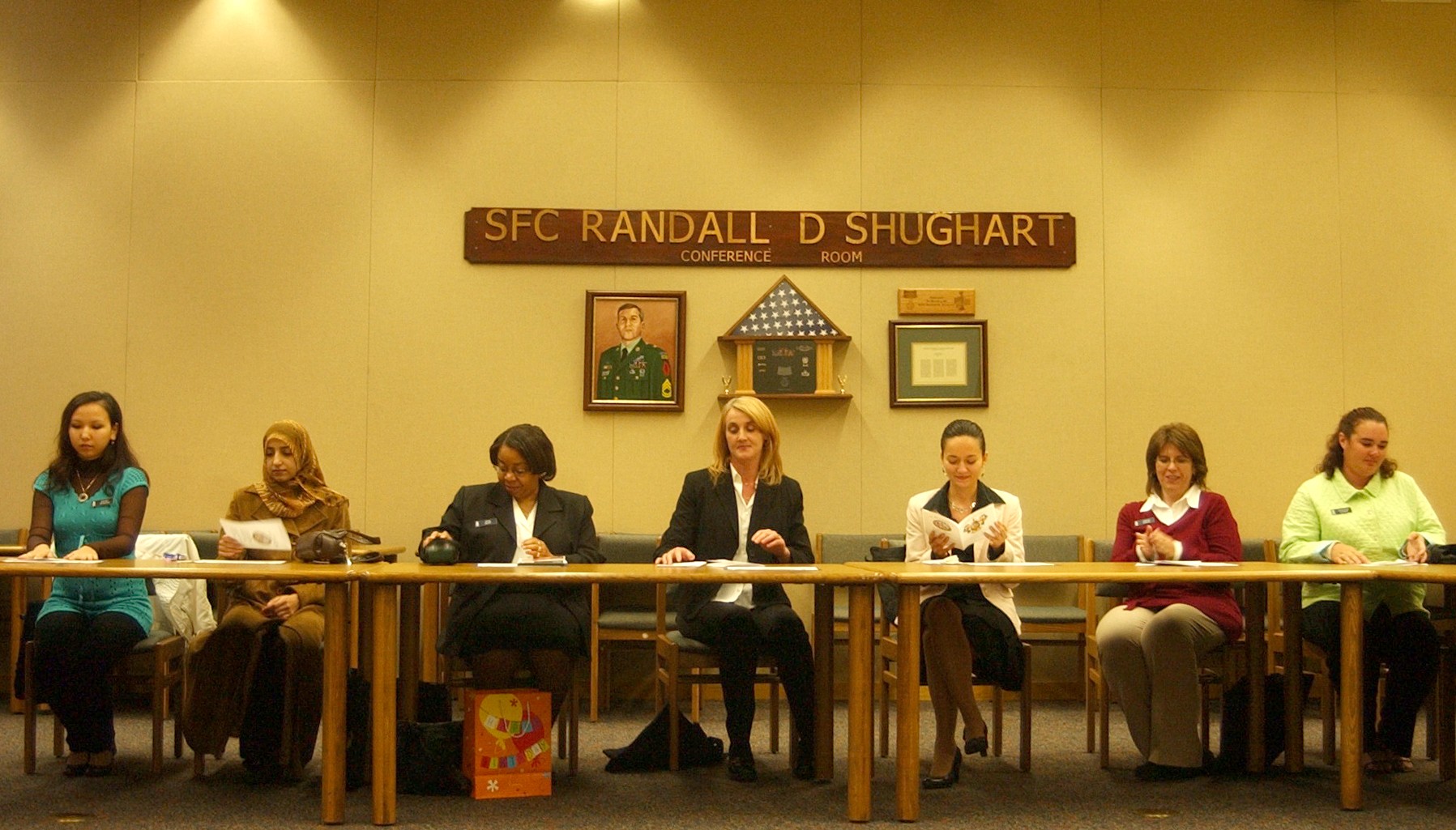
FORT BLISS, Texas - The graduation ceremony for a two-week course at the U.S. Army Sergeants Major Academy was held Nov. 7 for the seven women who attended, four of whom were spouses of foreign-military soldiers attending the academy - a first in the history of the course.
Jamalene Snyder, a student in Class 59-04 of the Spouse Leadership Development Course, was moved to tears when addressing Marilyn Cunningham, the course instructor, during her opening remarks.
"You took a chance on all of us and brought together a very diverse group of ladies and helped to empower each of us more than you will know," said Jamalene, the wife of Command Sgt. Maj. James Snyder, a member of Sergeants Major Course Class 59.
Jamalene and Lena Allen were the only American-born students in the class; their five classmates were Martina Goetz and Sabine Mann from Germany, Ainagul "Anna" Adiyet from Kazakhstan, Omayma Al Smadi from Jordan, and Savina Hubanov from Bulgaria.
The purpose of the course is to assist spouses in developing their leadership skills so that they can assist their husbands further along in their career, said Cunningham. The students are taught concepts such as teambuilding and developing learning styles, and it is because of the curriculum's universal nature that Cunningham said she was not worried about instructing such a diverse class.
"I don't think I was apprehensive at all, because I had seen the ladies around the academy and spoken with them," said Cunningham. "My question was: Why hadn't we done this before'"
Cunningham said part of her job as an instructor is to get the students to form a unit. The course is spread across a two-week, half-day schedule, but Cunningham said that entire time is spent "together, in one room, going through the process."
"They quickly find that they have more in common than they have differences, and those are the things we build on - we build those commonalities," she said. "Everybody has the same issues, when it comes down to it."
Mann praised the course as being a valuable tool and said the two weeks were "very intense and so full of information.
"The tools we have been given will not only help us, but will help us mentor so many more [spouses] that we're going to encounter," said Mann. "The wealth of information and interaction with the wonderful ladies here has been a very good and, at times, very overwhelming experience."
Goetz said she had no problems at all interacting with her classmates - "there was no language barrier" - and the class provided her with a wealth of knowledge and a new group of friends.
Attending the course gave Savina her first look at the U.S. Army's family readiness groups, an organization she said doesn't exist within the Bulgarian armed forces. Savina said she is eager to begin working to implement them in her husband's unit.
"I'm proud of my wife, first of all, and all the spouses here," said Bulgarian Sgt. Maj. Teodore Hubanov, also attending Class 59. "This [ceremony] is necessary recognition because the focus nowadays is on the soldiers, but behind every [male] soldier is one woman."

Social Sharing